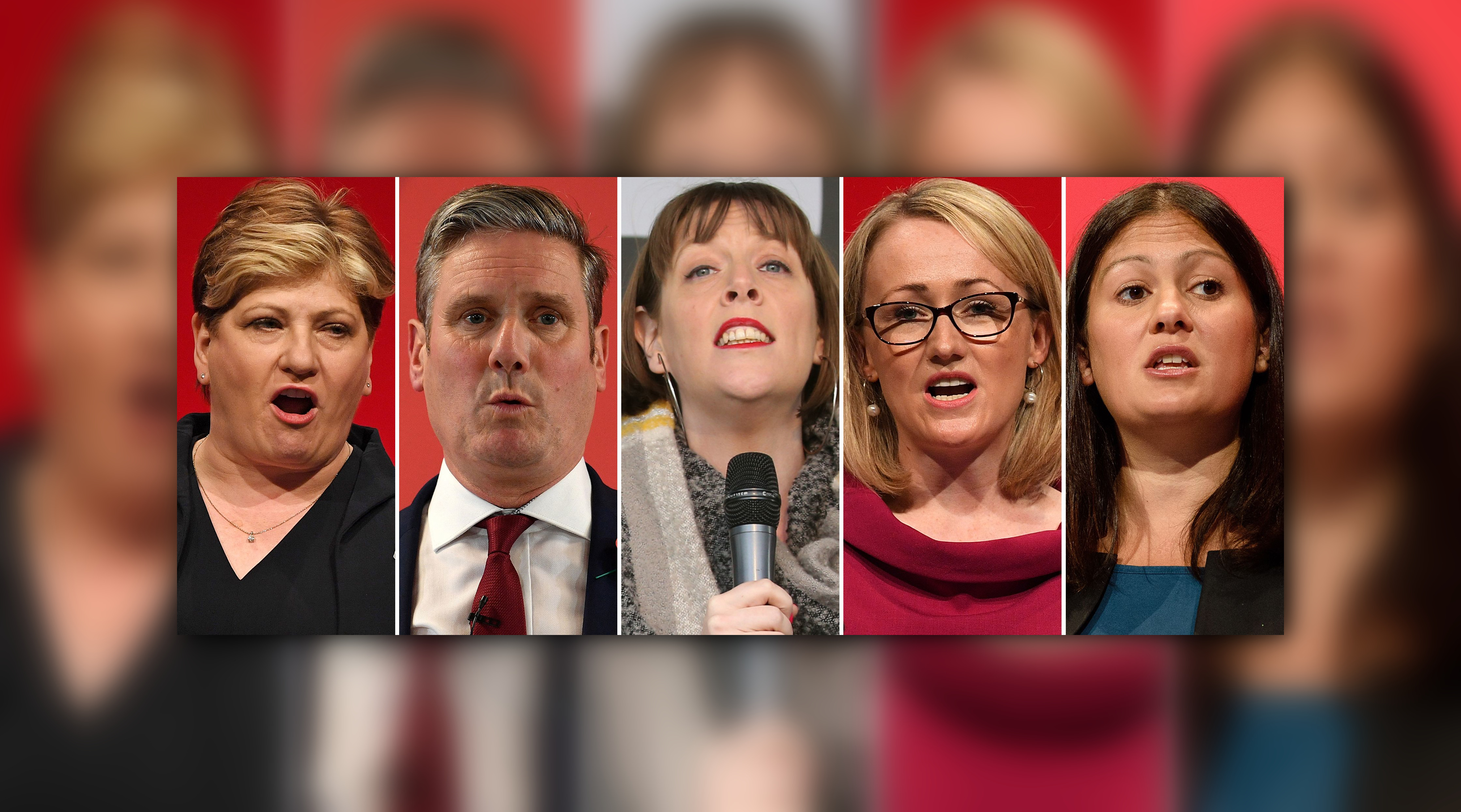Five candidates through to UK Labour leadership race
Sign up now: Get ST's newsletters delivered to your inbox

A combination of photos shows the five Labour leadership candidates that have made it through to the second round of the contest on Jan 13, 2020: (from left) Emily Thornberry, Keir Starmer, Jess Phillips, Rebecca Long-Bailey and Lisa Nandy.
PHOTO: AFP
LONDON (AFP) - Five MPs passed the first stage Monday (Jan 13) of the race to succeed Jeremy Corbyn as leader of Britain's main opposition Labour party, following its crushing defeat in last month's elections.
Keir Starmer, the party's Brexit spokesman who is backed by Britain's largest trade union, leads the pack with nominations from 89 MPs and members of the European Parliament, Labour figures show.
Rebecca Long-Bailey, Labour's business spokeswoman who wants to pursue Corbyn's socialist agenda and has the support of left-wing activist group Momentum, secured 33 nominations.
Three other women are also hoping to be Labour's first female leader in its nearly 120-year history.
They are Lisa Nandy, with 31 nominations, Jess Phillips, on 23, and Emily Thornberry, the party's foreign affairs spokeswoman, who secured the last of her 23 nominations only in the final hour.
A sixth candidate, Clive Lewis, pulled out shortly before nominations closed at 2.30pm (10.30pm Singapore time) on Monday, after admitting he would not meet the required threshold of 22.
Labour was founded by trade unions but took a more market-friendly approach under former prime minister Tony Blair, who was in office from 1997 to 2007.
But Corbyn moved the party significantly to the left following his shock election in 2015, after a lifetime spent campaigning for socialism.
He announced his resignation after last month's election, in which Prime Minister Boris Johnson's Conservatives won a landslide and Labour slumped to its worst result since 1935.
The party haemorrhaged support across its former heartlands in northern England, sparking a fierce internal debate over why.
Many blamed Labour's defeat on Corbyn's left-wing programme and personal unpopularity, but the party was also divided over its approach to Brexit.
Starmer, a former state prosecutor who had pushed his party to take a more anti-Brexit stance, is considered by many to be a more palatable centrist.
But while he is the favourite among MPs, he must ultimately win the support of party members - and they were responsible for putting Corbyn in power.
The battle is shaping up to be one for Labour's ideological soul, and will be crucial in determining whether it can defeat Johnson's Conservatives in the next election due in 2024.
Candidates must now get the support of 33 local Labour associations or three party affiliates, including at least two trade unions.
They will then go into a final postal ballot of party members and supporters who paid to take part.
Voting takes place from February 21 to April 2, with the winner announced two days later.


